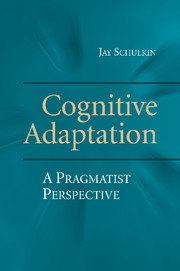Book contents
- Frontmatter
- Contents
- Preface
- Introduction
- 1 Cognitive Adaptation, Objects, and Inquiry
- 2 The Human Situation: Uncertainty and Adaptation
- 3 Time and Memory: Historical Sensibilities
- 4 Educational Sensibilities
- 5 An Instinct for Spiritual Quests: Quiet Religion
- Conclusion: Demythologized Reason
- References
- Index
4 - Educational Sensibilities
Published online by Cambridge University Press: 08 August 2009
- Frontmatter
- Contents
- Preface
- Introduction
- 1 Cognitive Adaptation, Objects, and Inquiry
- 2 The Human Situation: Uncertainty and Adaptation
- 3 Time and Memory: Historical Sensibilities
- 4 Educational Sensibilities
- 5 An Instinct for Spiritual Quests: Quiet Religion
- Conclusion: Demythologized Reason
- References
- Index
Summary
An education which does not begin by evoking initiative and end by encouraging it must be wrong. For its whole aim is the production of active wisdom.
– Alfred North Whitehead, Aims of EducationTo accept and, ultimately, understand evolving conceptions of ourselves and our human past, present, and uncertain future, we need to be educated. No one blueprint should or need be proposed, except that, at the heart, there should be some sense of being experimental, self-corrective, and kind to others. Reason needs to be demythologized and placed in instrumental and incremental units (e.g., Simon, 1962, 1982).
Underlying all forms of learning are cognitive events that set the proper conditions for learning, along with a propensity for self-correction. An experimental spirit is a humbling affair; we are wrong a fair amount of the time, and we should be aware of that. Also, hypotheses are shared – they are tentative.
Our brains are prepared to understand and consider the experiences of others through prosocial dispositions, which set the stage for appreciating others (Darwin 1859/1958, 1871/1874, 1872/1965) and facilitate social skills. We are drawn to tell our autobiographies and give away what we have learned, what we know; the human narrative is a fundamental way in which we learn from and about one another. Narrative tales convey a sense of other people's experience. When this consideration is linked to self-corrective learning and inquiry, our horizons can be broadened; after all, that is why open-mindedness is a virtue.
- Type
- Chapter
- Information
- Cognitive AdaptationA Pragmatist Perspective, pp. 94 - 122Publisher: Cambridge University PressPrint publication year: 2008



